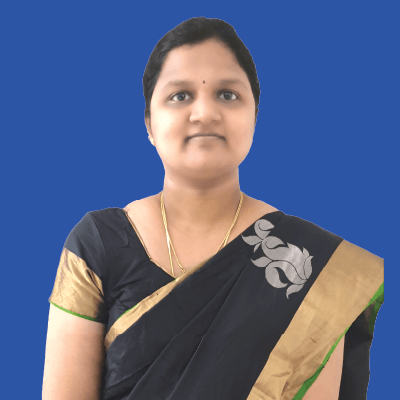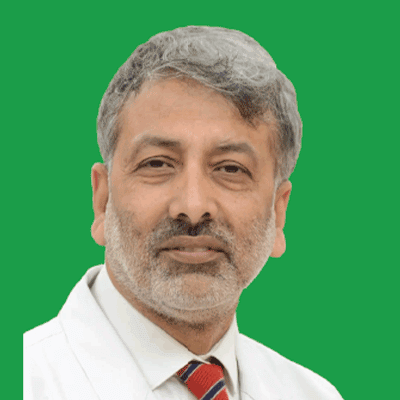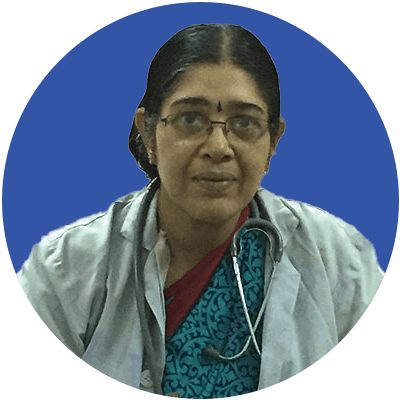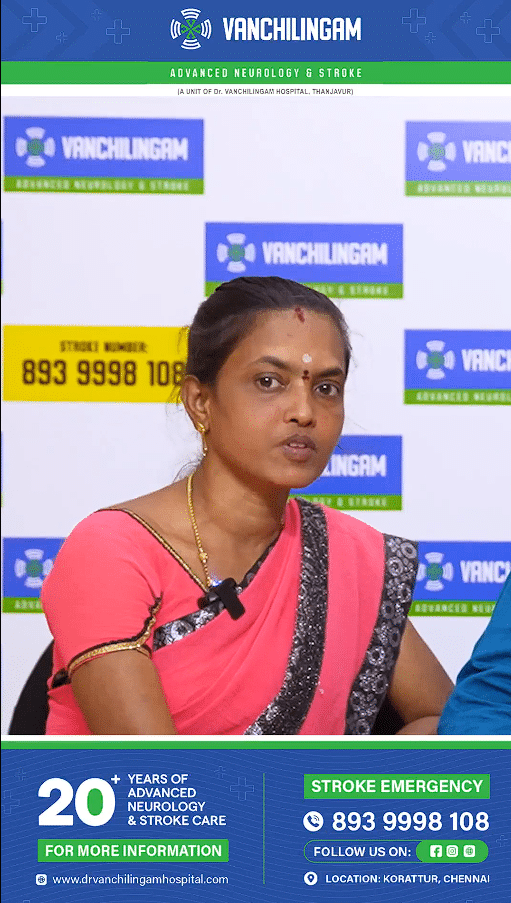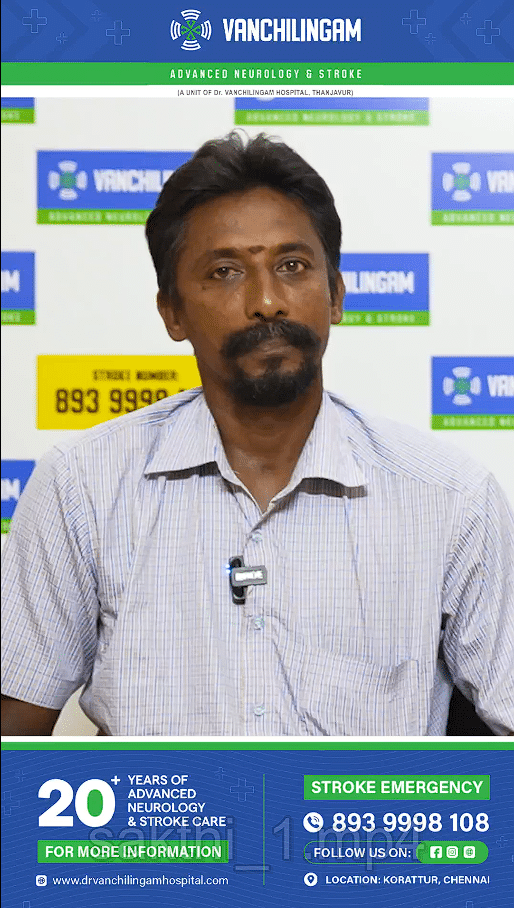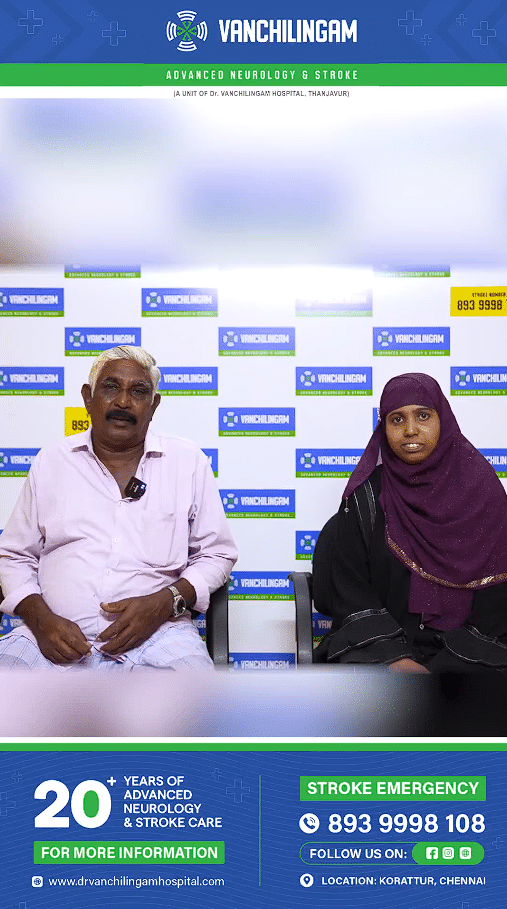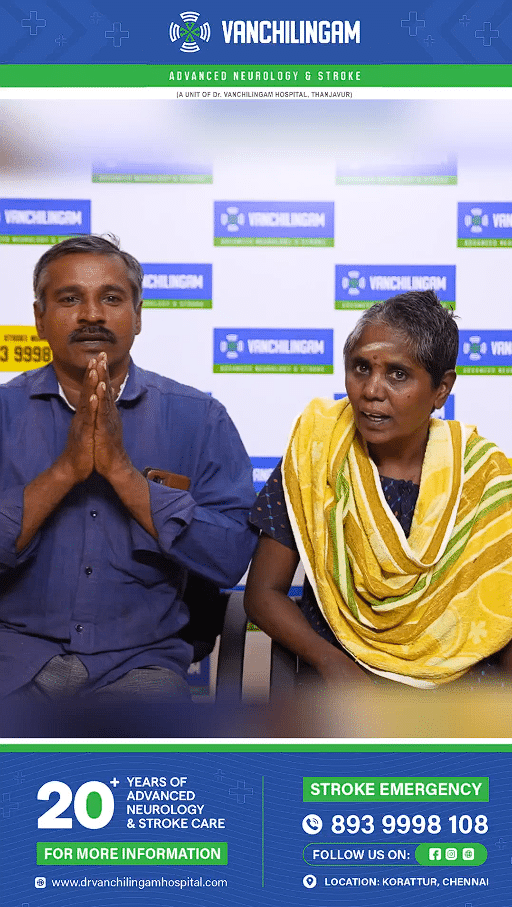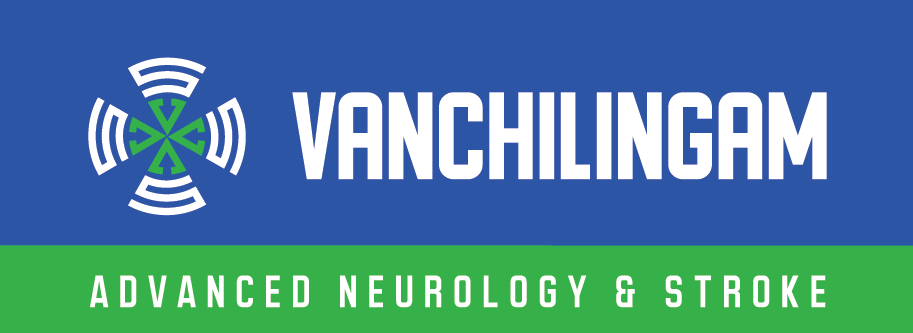Parkinson’s Disease: Advanced Neurology Care for a Better Tomorrow
- Expertise in Parkinson’s Diagnosis and Treatment
- Advanced Therapies Including Deep Brain Stimulation (DBS)
- Comprehensive Rehabilitation for Mobility and Independence
- Medication Plans Tailored to Your Needs
- Compassionate, Budget-Friendly Care
Restoring movement, renewing hope—expert Parkinson’s care at Vanchilingam.
With advanced treatments, personalized care, and genuine support, we stand by patients and their families, helping them face the challenges of Parkinson’s disease with strength, confidence, and hope for a better tomorrow. At Vanchilingam Advanced Neurology and Stroke Care, we are dedicated to helping individuals with Parkinson’s disease live fuller, more independent lives.
What is Parkinson’s Disease?
Parkinson’s disease is a progressive neurological disorder that primarily affects movement. It occurs when nerve cells in the brain that produce dopamine—a chemical responsible for smooth, coordinated muscle movements—begin to deteriorate. While the condition progresses over time, early diagnosis and targeted therapies can significantly improve quality of life.
Symptoms to Watch For
Parkinson’s symptoms can vary, but common signs include:
- Tremors or shaking, often starting in the hands or fingers.
- Slowed movements (bradykinesia) that make daily tasks challenging.
- Stiffness in the arms, legs, or trunk, limiting mobility.
- Impaired balance and posture, increasing the risk of falls.
- Changes in speech, handwriting, or facial expressions.

Causes and Risk Factors
The exact cause of Parkinson’s remains unclear, but certain factors may contribute:
- Genetics: A family history of Parkinson’s increases the likelihood of developing the condition.
- Environmental Triggers: Long-term exposure to toxins or pollutants.
- Aging: Parkinson’s typically develops after age 60, though early-onset cases occur.
- Neurological Changes: The presence of Lewy bodies—abnormal protein deposits—in the brain.
Comprehensive Parkinson’s Care
- Neurological Examination: Assessing motor and non-motor symptoms.
- Imaging Studies: MRI or DAT scans to rule out other conditions.
- Dopamine Replacement Therapy: Medications like levodopa to improve motor symptoms.
- Adjunct Therapies: Drugs to manage tremors, rigidity, or non-motor symptoms.
- Deep Brain Stimulation (DBS): A surgical procedure that uses electrical impulses to regulate brain activity.
- Localized Injection Therapy: To manage stiffness or specific muscle-related symptoms.
- Physiotherapy: Exercises to improve strength, flexibility, and balance.
- Speech Therapy: Techniques to enhance communication and swallowing functions.
- Occupational Therapy: Strategies to maintain independence in daily activities.
- Nutrition plans to promote brain health and manage symptoms.
- Stress management techniques, including mindfulness and yoga.
Why Choose Vanchilingam for Parkinson’s Treatment?
Specialized Expertise: Our neurologists are skilled in diagnosing and treating Parkinson’s at all stages.
Comprehensive Care Plans: Every treatment is tailored to the patient’s unique needs and lifestyle.
State-of-the-Art Facilities: Equipped with advanced tools like DBS and imaging technologies for precise care.
Holistic Approach: We address the full spectrum of Parkinson’s, from physical symptoms to emotional well-being.
Family-Centric Support: Guidance and education to help caregivers provide effective and compassionate support.
Reclaim Your Independence
Parkinson’s disease may bring challenges, but it doesn’t have to limit your potential. At Vanchilingam Advanced Neurology and Stroke Care, we are here to help you regain control, rediscover joy, and restore confidence.
Take the first step toward better living—contact us today to schedule a consultation and explore your treatment options.
Meet the Specialists
Our team of dedicated specialists brings years of expertise and a passion for delivering personalized care.
Real Experiences, Real Results
Discover how Dr. Vanchilingam Advanced Neuro & Stroke Hospital has transformed the lives of our patients. Also hear our specialists talk about the services and solutions we offer for various neurological issues.
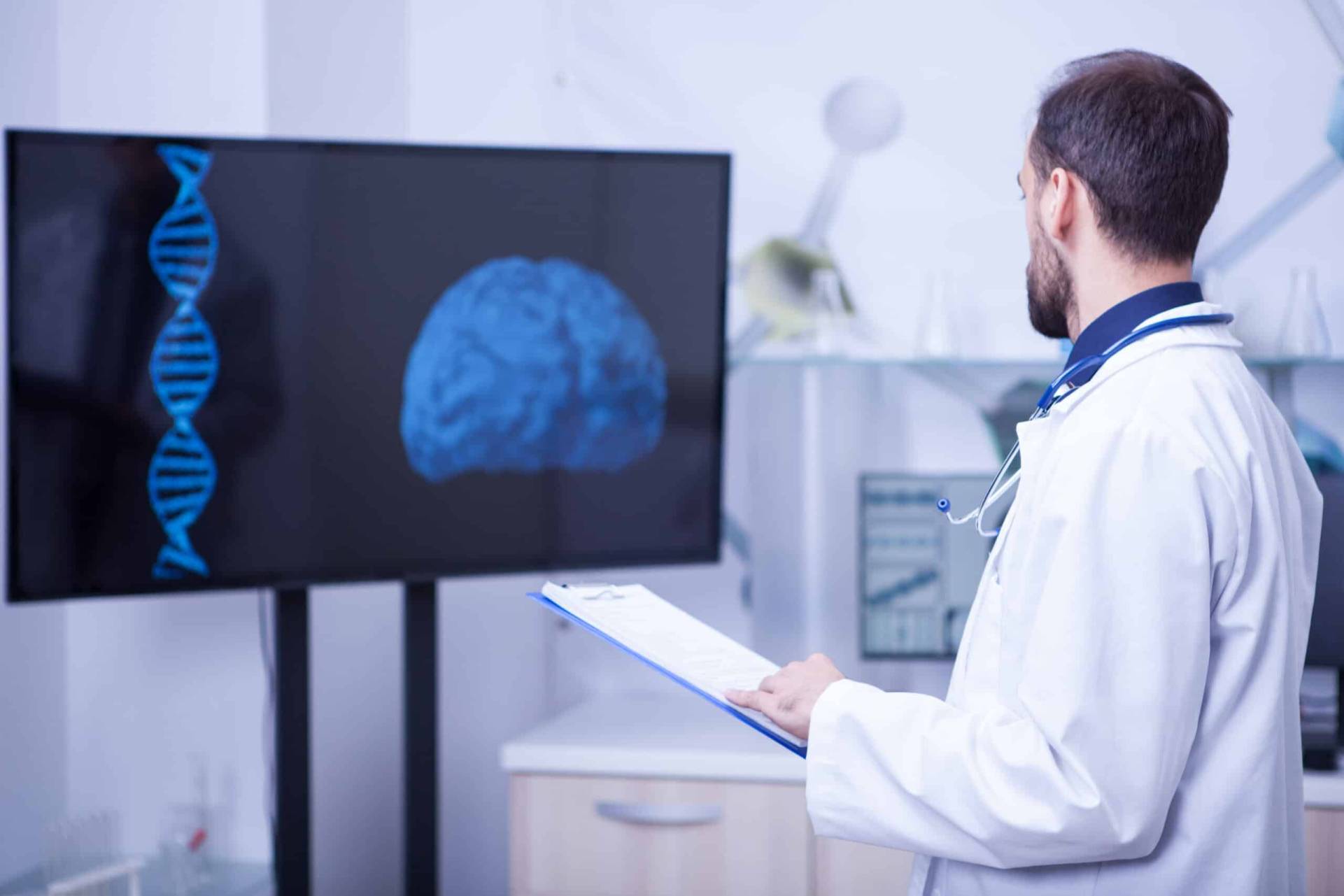



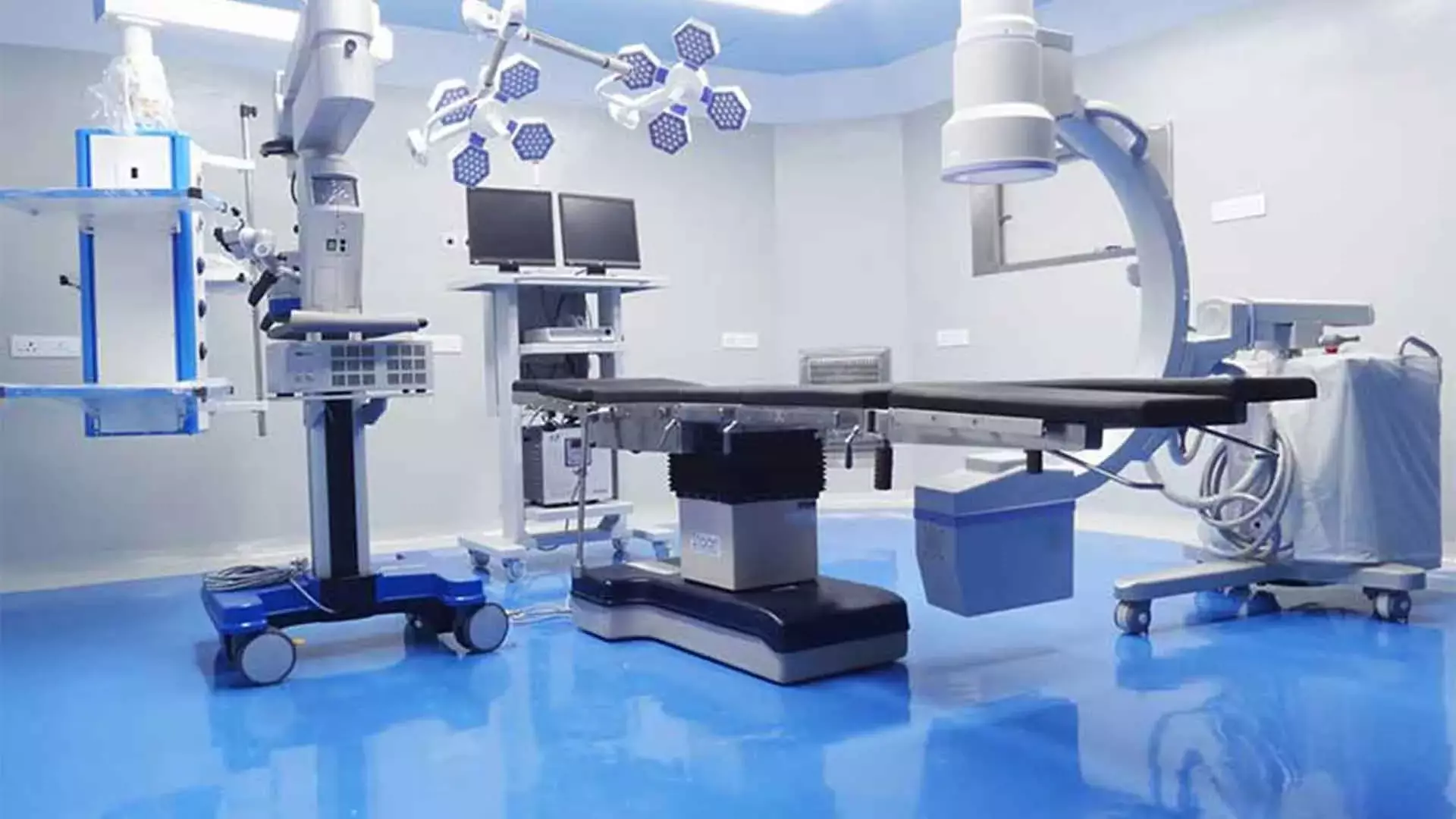
OUR SPECIALITY
Acute Stroke Unit
The Acute Stroke Unit is an acute neurological ward providing specialist services for people who have had a new suspected stroke. On the Acute Stroke Unit we provide: Thrombolysis treatment -treatment is started in the Emergency Department and you will have the rest of your Treatment and monitoring on the Acute Stroke Unit
OUR SPECIALITY
Advanced Neuro ICU
A neuro ICU is an Intensive Care Unit which is particularly devoted to a high – quality care of patients with the neurological problems that are life-threatening in nature. The neuro ICU of our hospital is a complete state of the art and a full-fledged one designed to provide almost all sorts of advanced neurological care to the normal patients as well as the patients in the emergency.
OUR SPECIALITY
Advanced Neuro Imaging
Our radiology department is a state of the art department with all the necessary infrastructure that is essential for effectively dealing with the neuro and neurosurgery emergencies at its best. The advanced neuroimaging techniques used by our doctors are as discussed below.
OUR SPECIALITY
Neuro interventional Cath Lab
A neuro-interventional Cath lab in a neurodiagnostic Centre is a specialized catheterization laboratory which has all the necessary diagnostic imaging equipment that is particularly used for the purpose of visualization of the arteries, veins and other vascular malformations of the brain and spinal cord.
OUR SPECIALITY
Neuro-Surgery Operating Room
The neurosurgery operating room of Dr.Vanchilingam Hospital, Neurosurgery Hospital is a fully functional and a state of art one that has the adequate infrastructure for effectively carrying out even the most complicated neuro surgeries with ease.
What is Parkinson’s disease, and how does it affect individuals?
Parkinson’s disease is a progressive neurological disorder that primarily impacts movement. It occurs due to the deterioration of nerve cells in the brain responsible for producing dopamine, which is vital for smooth and coordinated muscle movements. Over time, symptoms such as tremors, slowed movements, stiffness, and balance issues may develop, affecting daily life.
What are the common symptoms of Parkinson’s disease?
Typical symptoms include:
- Tremors or shaking, often starting in the hands or fingers.
- Slowed movements, making daily tasks more challenging.
- Muscle stiffness in the arms, legs, or trunk.
- Impaired posture and balance, increasing fall risks.
- Changes in speech, handwriting, or facial expressions.
What causes Parkinson’s disease?
The exact cause is unclear, but several factors contribute:
- Genetics: Family history of the disease.
- Environmental triggers: Long-term exposure to toxins or pollutants.
- Aging: Most cases develop after age 60.
- Neurological changes: The presence of Lewy bodies in the brain.
Can younger individuals develop Parkinson’s disease?
Yes, while Parkinson’s disease typically develops after age 60, early-onset Parkinson’s can occur in individuals younger than 50. Early-onset cases may be linked to genetic factors or specific environmental exposures. Early diagnosis is essential to manage symptoms effectively.
How is Parkinson’s disease diagnosed?
At Vanchilingam, we employ a thorough diagnostic process that includes:
- Neurological exams to evaluate motor and non-motor symptoms.
- Advanced imaging techniques, such as MRI or DAT scans, to rule out other conditions.
What treatment options are available for Parkinson’s disease?
We offer a wide range of treatments, including:
- Medications: Dopamine replacement therapies like levodopa and adjunct therapies for specific symptoms.
- Advanced therapies: Deep Brain Stimulation (DBS) and Botox injections.
- Rehabilitation programs: Physiotherapy, speech therapy, and occupational therapy.
- Lifestyle support: Nutrition plans and stress management techniques like mindfulness and yoga.
What is Deep Brain Stimulation (DBS), and how can it help?
DBS is a surgical procedure that regulates brain activity using electrical impulses. It can effectively manage motor symptoms of Parkinson’s, improving quality of life for patients who no longer respond well to medications.
How does Vanchilingam Advanced Neurology and Stroke Care stand out in Parkinson’s treatment?
Our hospital provides:
- Specialized neurologists with expertise in Parkinson’s care.
- Tailored treatment plans to suit individual needs.
- Advanced technology for precise diagnosis and care, including DBS.
- A holistic approach addressing both physical symptoms and emotional well-being.
- Family-centered support to guide caregivers effectively.
Can Parkinson’s disease be managed to improve quality of life?
Yes, with early diagnosis and targeted therapies, patients can maintain a higher quality of life. Our multidisciplinary approach combines medical, rehabilitative, and lifestyle strategies to help individuals regain independence and confidence.
What rehabilitation services are available for Parkinson’s patients?
Our rehabilitation programs focus on enhancing mobility, communication, and daily independence through:
- Physiotherapy for strength and balance.
- Speech therapy to improve speech and swallowing functions.
- Occupational therapy for adapting to daily tasks.
Is the treatment for Parkinson’s different for younger and older patients?
Yes, treatment plans may vary based on age and individual needs. Younger patients may benefit from specific therapies like Deep Brain Stimulation (DBS) earlier in their treatment journey, while older patients may prioritize medication and rehabilitation to manage symptoms effectively.
How can I schedule a consultation for Parkinson’s treatment at Vanchilingam?
You can contact us directly through the website enquiry or appointment form or through phone to schedule a consultation. Our team is here to discuss your symptoms, provide a thorough evaluation, and explore personalized treatment options.






